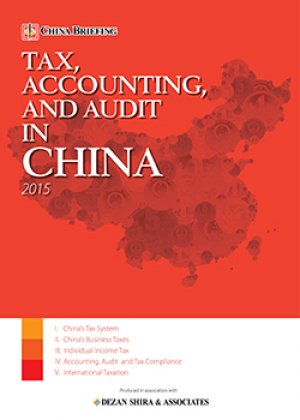China Regulatory Brief: Simplified Company Registration Procedures, General Plans of New FTZs Released
China to Simplify Company Registration Procedures
On April 17, the State Administration for Industry and Commerce (AIC) announced its decision to simplify companies’ registration and establishment procedures. Specifically, the National organization code certificate and tax registration certificate will no longer be issued separately. Instead, the local AIC will issue a special business license to enterprises with both organization code and tax registration code on it. Further, the AIC is looking to implement a unified “business registration code” to replace the current three codes for company registration within this year. According to the latest statistics released by the AIC, 844,000 companies have been newly established in China during the first quarter of this year.
China Releases General Plans of New Free Trade Zones
On April 20, China’s State Council finally released the much-anticipated overall plans of the Tianjin, Guangdong and Fujian Free Trade Zones (FTZs) approved earlier this year, as well as an updated Negative List which is applicable to all of the four FTZs in China, including the expanded Shanghai FTZ. In December last year, Chinese Premier Li Keqiang announced that three more FTZs will be established in China, based on the model of the Shanghai FTZ. Each is to make full use of its geographic location and carry special local features.
![]() RELATED: China Announces Three New FTZs in Tianjin, Guangdong and Fujian
RELATED: China Announces Three New FTZs in Tianjin, Guangdong and Fujian
China Releases Tax Policies for Supporting Reorganization of Enterprises
The Ministry of Finance (MOF) and the State Administration of Taxation (SAT) recently released a Notice clarifying tax policies for nine business activities, including enterprise restructuring, merger, bankruptcy and asset transfer. Under the new tax policy, whenever an eligible restructured company takes over rights and obligations from the previous entity, the transfer of immovable property from the original enterprise is exempted from deed tax. The Notice took effect on January 1, 2015 and will last until December 31, 2017.
Xi’an Raises Minimum Wage Levels for 2015
On April 7, the Xi’an Human Resources and Social Security Department released its monthly and hourly minimum wage levels for 2015, which took effect on May 1, 2015. The Xi’an city government has divided its districts into four wage classes and set different minimum wage levels accordingly. The monthly minimum wage in Xi’an’s A class districts such as Xincheng and Lianhu has been adjusted to RMB 1,480, while the hourly minimum wage has been adjusted to RMB 14.8. In its B class districts including Chang’an, Lintong and Gaolin, the monthly minimum wage will be raised to RMB 1,370.
Shanghai to Launch Tourist VAT Rebate Scheme in 2015
Shanghai is looking to implement tourist value-added tax (VAT) rebate policies within this year and is currently selecting eligible tax refund stores, according to Yang Jingsong, the director of the Shanghai Municipal Tourism Administration (SMTA). Under the scheme, foreign tourists purchasing goods in eligible stores are able to apply for VAT rebate at designated points of departure. The threshold for VAT refunds is set at RMB 500. In 2011, China launched this policy as a pilot scheme in Hainan. The country is currently looking to expand the tax rebates policy nationwide to boost its domestic tourism industry.
|
Asia Briefing Ltd. is a subsidiary of Dezan Shira & Associates. Dezan Shira is a specialist foreign direct investment practice, providing corporate establishment, business advisory, tax advisory and compliance, accounting, payroll, due diligence and financial review services to multinationals investing in China, Hong Kong, India, Vietnam, Singapore and the rest of ASEAN. For further information, please email china@dezshira.com or visit www.dezshira.com. Stay up to date with the latest business and investment trends in Asia by subscribing to our complimentary update service featuring news, commentary and regulatory insight. |
![]()
 Tax, Accounting, and Audit in China 2015
Tax, Accounting, and Audit in China 2015
This edition of Tax, Accounting, and Audit in China, updated for 2015, offers a comprehensive overview of the major taxes foreign investors are likely to encounter when establishing or operating a business in China, as well as other tax-relevant obligations. This concise, detailed, yet pragmatic guide is ideal for CFOs, compliance officers and heads of accounting who must navigate the complex tax and accounting landscape in China in order to effectively manage and strategically plan their China operations.
 Human Resources and Payroll in China 2015
Human Resources and Payroll in China 2015
This edition of Human Resources and Payroll in China, updated for 2015, provides a firm understanding of China’s laws and regulations related to human resources and payroll management – essential information for foreign investors looking to establish or already running a foreign-invested entity in China, local managers, and HR professionals needing to explain complex points of China’s labor policies.
 Employing Foreign Nationals in China
Employing Foreign Nationals in China
In this issue of China Briefing, we have set out to produce a guide to employing foreign nationals in China, from the initial step of applying for work visas, to more advanced subjects such as determining IIT liability and optimizing employee income packages for tax efficiency. Lastly, recognizing that few foreigners immigrate to China on a permanent basis, we provide an overview of methods for remitting RMB abroad.
- Previous Article China Regulatory Brief: Loosened FDI Regulations, Private Economy Demonstration Zone in Wenzhou
- Next Article China Regulatory Brief: Record Filing Procedures in FTZs, Bank Card Clearing Market Liberalization




























